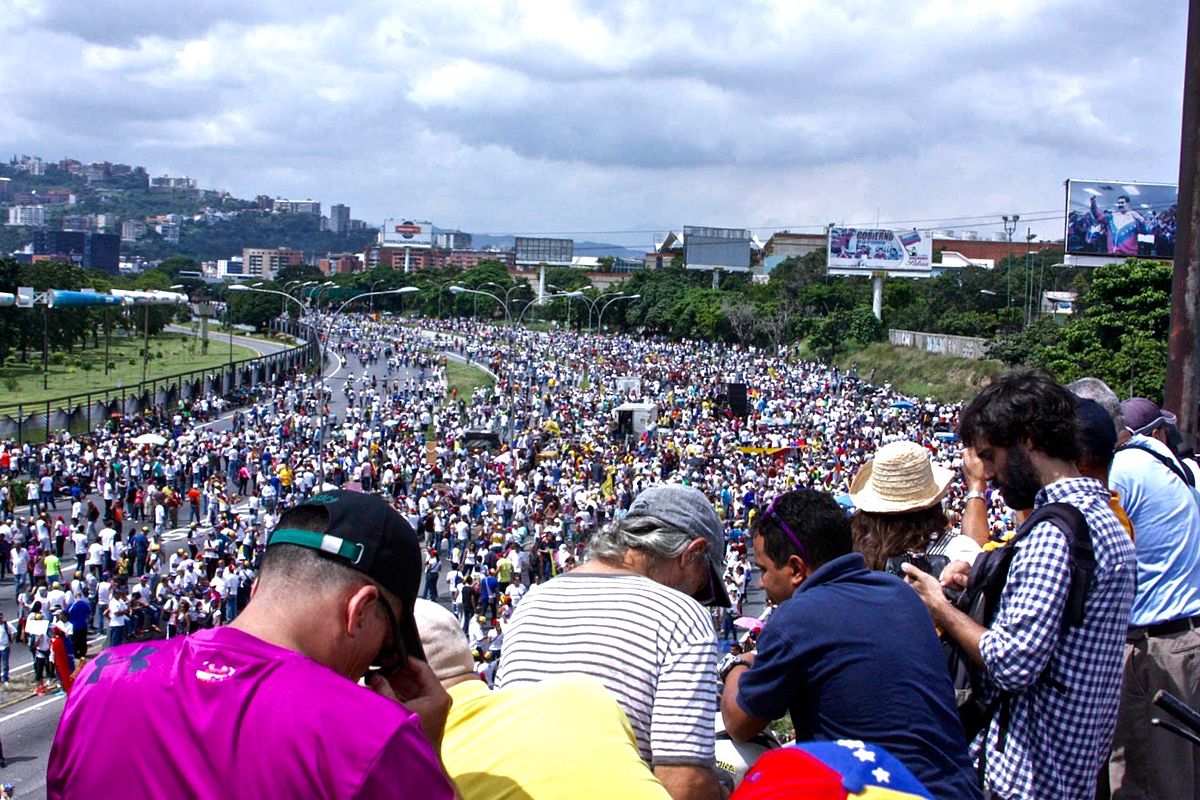In 1982, Venezuela was the richest major economy in Latin America. Now, it’s the most dangerous country in the world, behind Afghanistan and war torn South Sudan. This is socialism. Venezuela’s downturn is the result of decades of political upheaval and implementation of socialist policies from Hugo Chavez and now to Nicolas Maduro.
Today, Venezuelans are taking to the streets to march in what many think will be the largest anti-government demonstration that has taken place in the past few years. The marchers are demanding the ousting of President Nicolas Maduro, whose election in 2013 has been widely considered a sham. In addition, a new legislative assembly was inaugurated on July 30, 2017 with many anticipating constitutional changes to take place which will further entrench the Maduro regime, implementing a dictatorship.
This day holds much significance for Venezuelans as it is the 61st anniversary of the overthrow of Marcos Perez Jimenez, who served first as military dictator and then as “president” of Venezuela from 1948 to 1958. His repressive regime ruthlessly prosecuted and imprisoned dissenters. On this day 61 years ago, he was overthrown by military leaders fed up with the decline of private enterprise, religious persecution and oppressive policies.
Venezuelans are again marching for freedom today.
Through my work at Acton Institute, I have been fortunate to come in touch with many courageous Venezuelan leaders and political dissidents. I have listened teary eyed while they tell the story of their country’s decline. Where they were once faced with deciding what brand of clothes to buy, they are now forced to make a decision on whether they should eat a meal or buy toilet paper. Recently, I walked into one of my favorite coffee shops in Grand Rapids, owned by Venezuelans, to see the owners packing a box full of paper towels, coffee, canned food and medicine to send to family still in Venezuela. Their family used to be wealthy business owners, but now they can’t afford the bare essentials. This picture might not even fully capture the depraved situation.
Nine out of ten homes in Venezuela can’t afford enough to eat, 30.5 percent of Venezuelans say they often eat only once a day and 28.5 percent reported that they eat ‘nothing or close to nothing at least once a week. Additionally, 13 million Venezuelans live on a mandated monthly wage of less than $2 USD. Recent gallup polls show that only 24 percent of Venezuelans are confident in their police and only 17 percent feel safe walking home at night. Inflation rates have now exceeded 1,000,000 percent.
The circumstances are dire and things must change, fast.
This past summer, at our annual Acton University conference, Venezuelan political dissident Maria Corina Machado spoke to 1,000 people attending the conference from her home in Caracas. Over Skype, Machado urged the audience to consider “what’s at stake” in Venezuela. The only way forward from here is through open markets, respect of individual dignity and the prayers of Christians around the world, Machado said. Sadly, at the end of her talk, the audience learned that a Venezuelan friend of Machado’s and fellow lover of liberty was arrested en route to attend Acton University.
Later in the conference, Acton Institute president, Rev. Robert Sirico, presented the infamous hockey stick graph, displaying the incredible jump in human wealth and prosperity that has taken place during the past 200 years. This growth has extended across the world, but is regressing in Venezuela. This is the result of a corrupt regime implementing socialist policies.
Machado finished her talk at Acton University with these words: “Venezuelan people today are more united than ever – determined to do what it takes to build back our country.” Let’s unite with those marching today in Venezuela. Take a moment to pray for the brave and courageous Venezuelan people who possess inherent dignity as they fight for their freedom and well-being. What we cannot do is sit back with indifference while human rights violations are taking place in what was, at one time, one of the wealthiest countries in Latin America.
Feature photo by Hugo Londono taken 26 October 2016.
